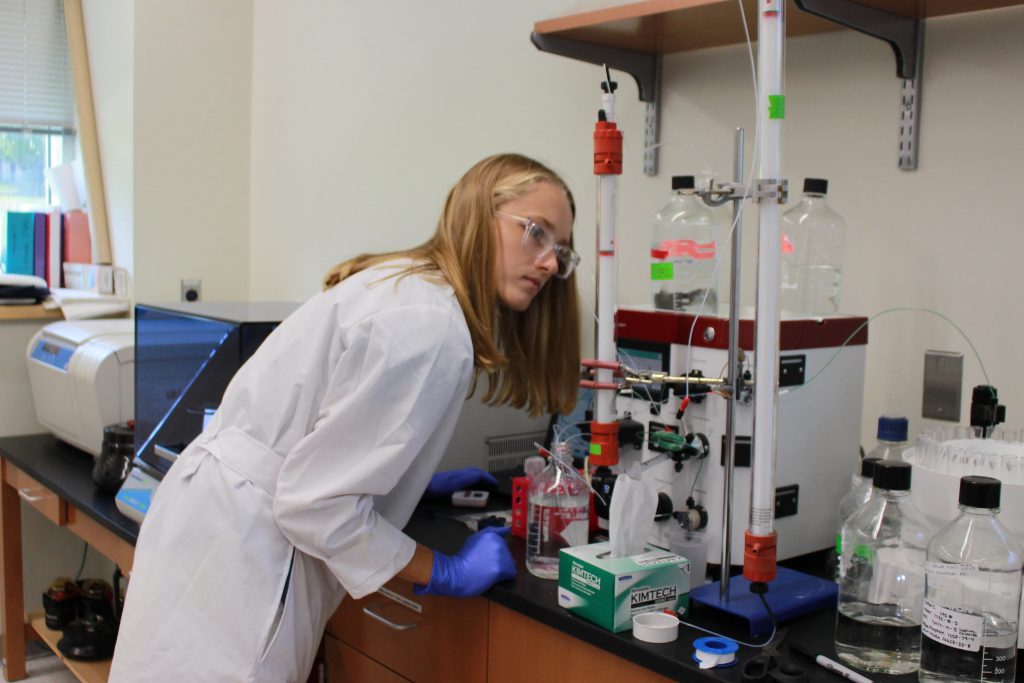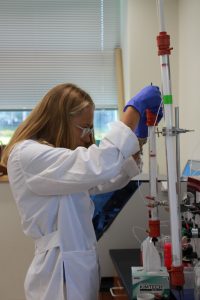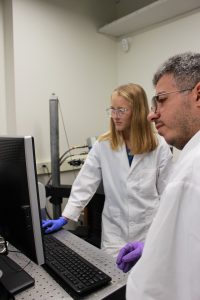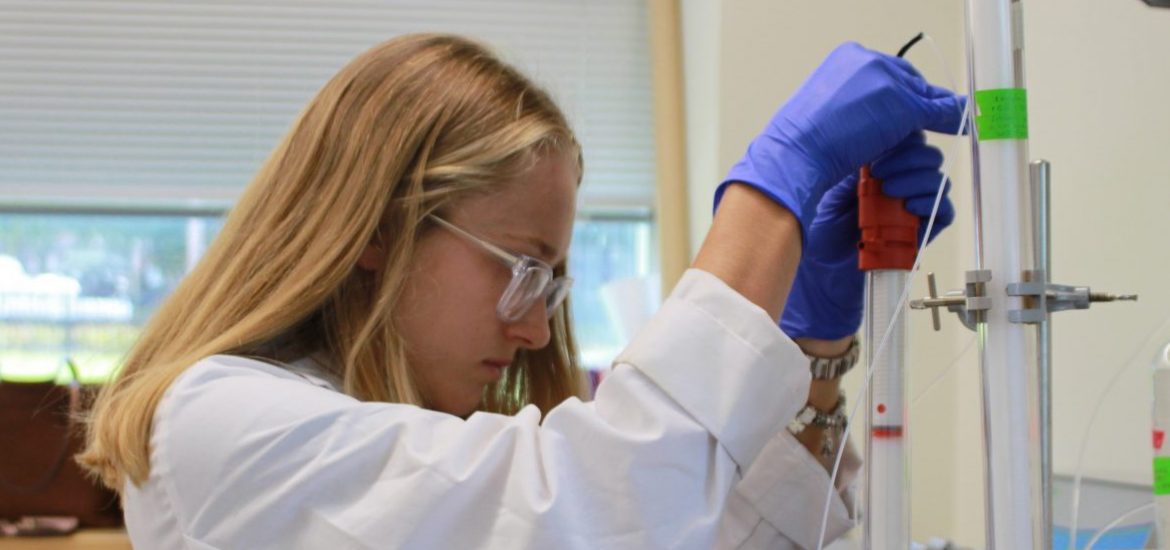
Meet Alyssa Sanders, a rising junior from Pitman (Gloucester County) majoring in Translational Biomedical Science (TBS) from the College of Science & Mathematics. This summer, she was able to take an internship offered at Rowan where she got the chance to do research on many projects, one of which was called The Drug Delivery Project.
“Some people put [TBS] as an advanced biology degree. So, you’re basically taking what you learn in the classrooms and then applying it to research,” Alyssa said.
According to Alyssa, a TBS major needs to take 12 credits of research hours to be able to graduate. With a bachelor’s in TBS there are many things a person can do. “We can go on to getting our Ph.D., go to med school or go right into the working field and become a research assistant,” she said.
 Alyssa will become the first doctor in her family; both her parents chose different careers outside of the medical field. “I really want to become a doctor, so I liked how it [the TBS major] kind of had a built-in premed track. I want to be a pediatrician,” she said.
Alyssa will become the first doctor in her family; both her parents chose different careers outside of the medical field. “I really want to become a doctor, so I liked how it [the TBS major] kind of had a built-in premed track. I want to be a pediatrician,” she said.
This summer, Alyssa worked alongside Dr. Nathaniel Nucci, assistant professor from the departments of Biomedical & Translational Sciences and Physics & Astronomy. “What I did mainly over the summer was purified proteins,” Alyssa said. “So, we purified red fluorescent proteins (RFP), that way we can use it during the school year since purifying protein is very time consuming.”
The Drug Delivery Project was one of the many projects Sanders did research for this summer. For this project, purifying RFP was the goal. “For The Drug Delivery Project, we are trying to find out a new way to deliver drugs to the body. Sometimes proteins are too big, or they are hydrophilic and they really can’t cross your blood brain barrier, or your body ceases them and signals them out because they are too big, even though they are trying to help you get better but the body will destroy them,” Alyssa explained.
“So, we are trying to use a mechanism like a bubble to engulf the proteins to disguise them, so the body won’t send signals out to destroy them. And then it can go to different parts to your body and actually be delivered to the body,” she said.
Alyssa started to do work in the lab last spring because that is when she had to start getting credits for her major. Dr. Nucci saw that she was working hard and doing an excellent job, so he offered her the summer internship.
“Nucci would definitely be like a mentor that is coming to my life through this opportunity because he knows so much. He’s a biophysics professor, but he knows everything. He knows stuff about chemistry, organic chemistry and he knows stuff about any field of science basically,” she said.
If there is one thing that Alyssa has learned through her internship this summer is, “that science does not go according to plan and as Nucci says, ‘A lot is research for a reason. You can’t just search at once, you gotta keep doing it over and over again.’”
Her advice for anyone interested in her major: “It’s very hard. It’s not something that you can be like, ‘oh yeah this will be fun or easy.’ It’s not an easy major, but it’s worth it. If you want to go to medical school or get your Ph.D. it is definitely a major that is going to prepare you for that, because you have to take your harder classes like organic chemistry, biophysics and advanced classes that will prepare you.”
Like what you see, come visit us!
Story by:
Iridian Gonzalez, senior journalism major



